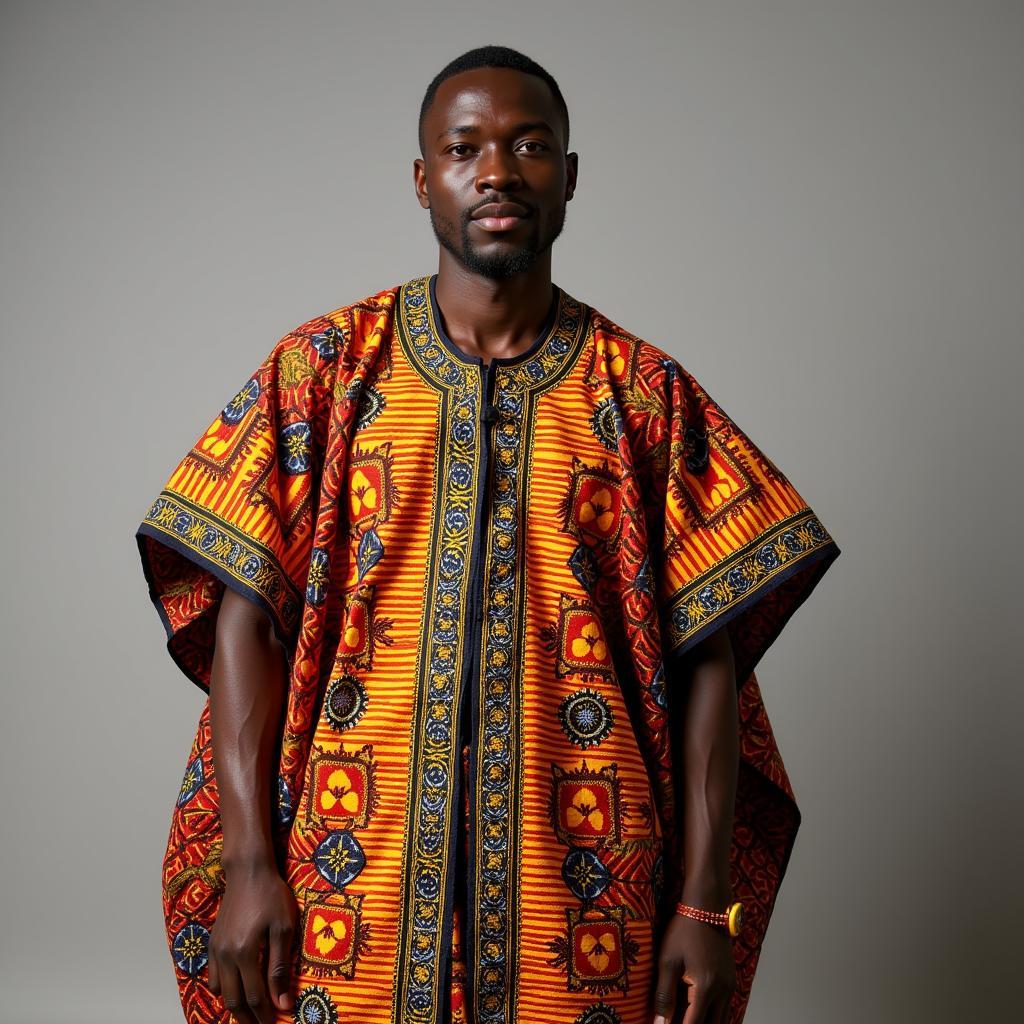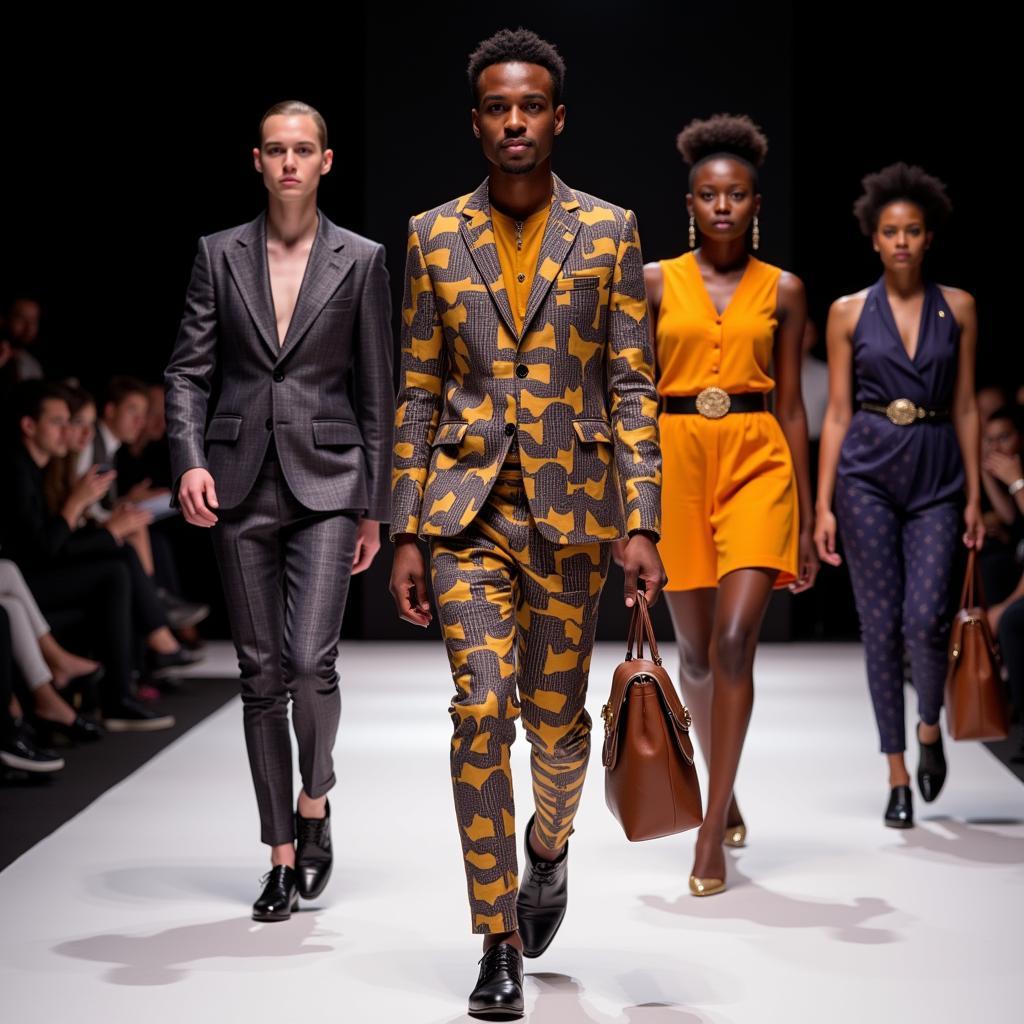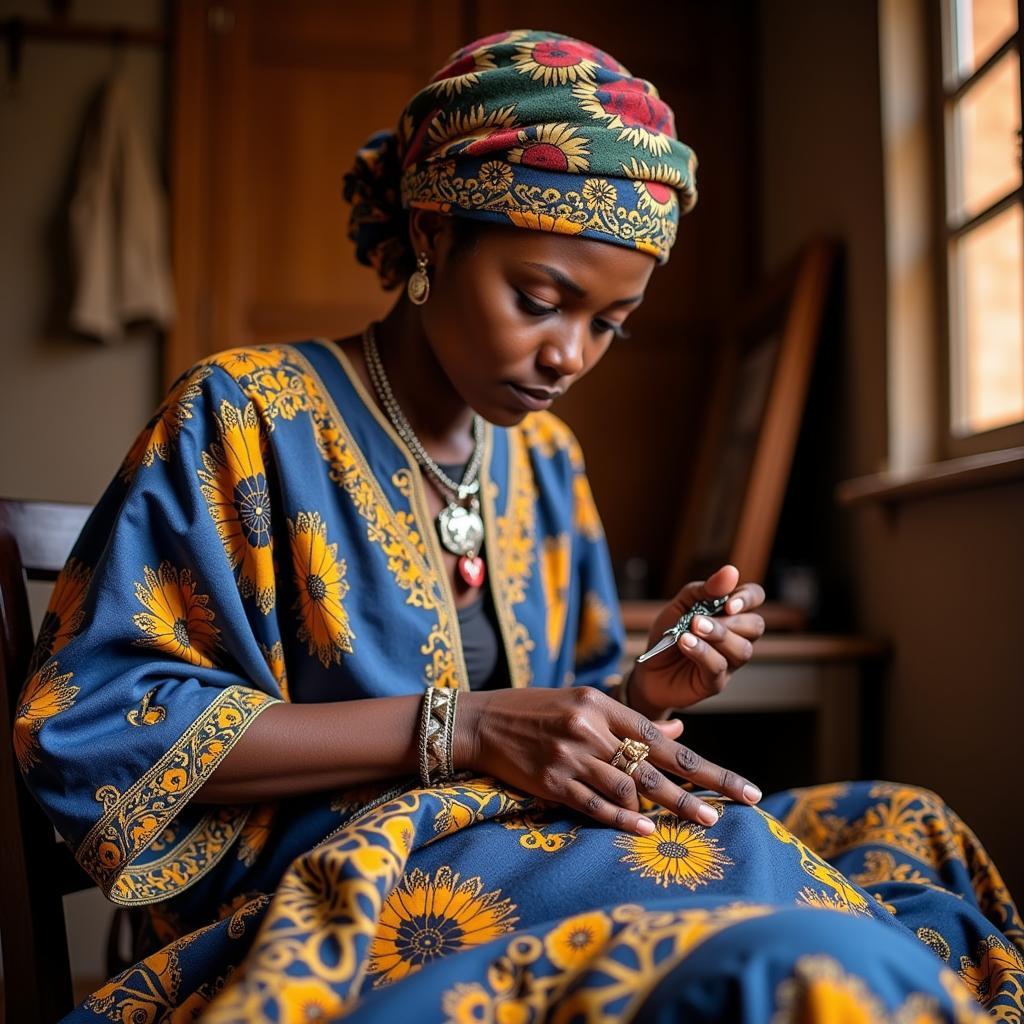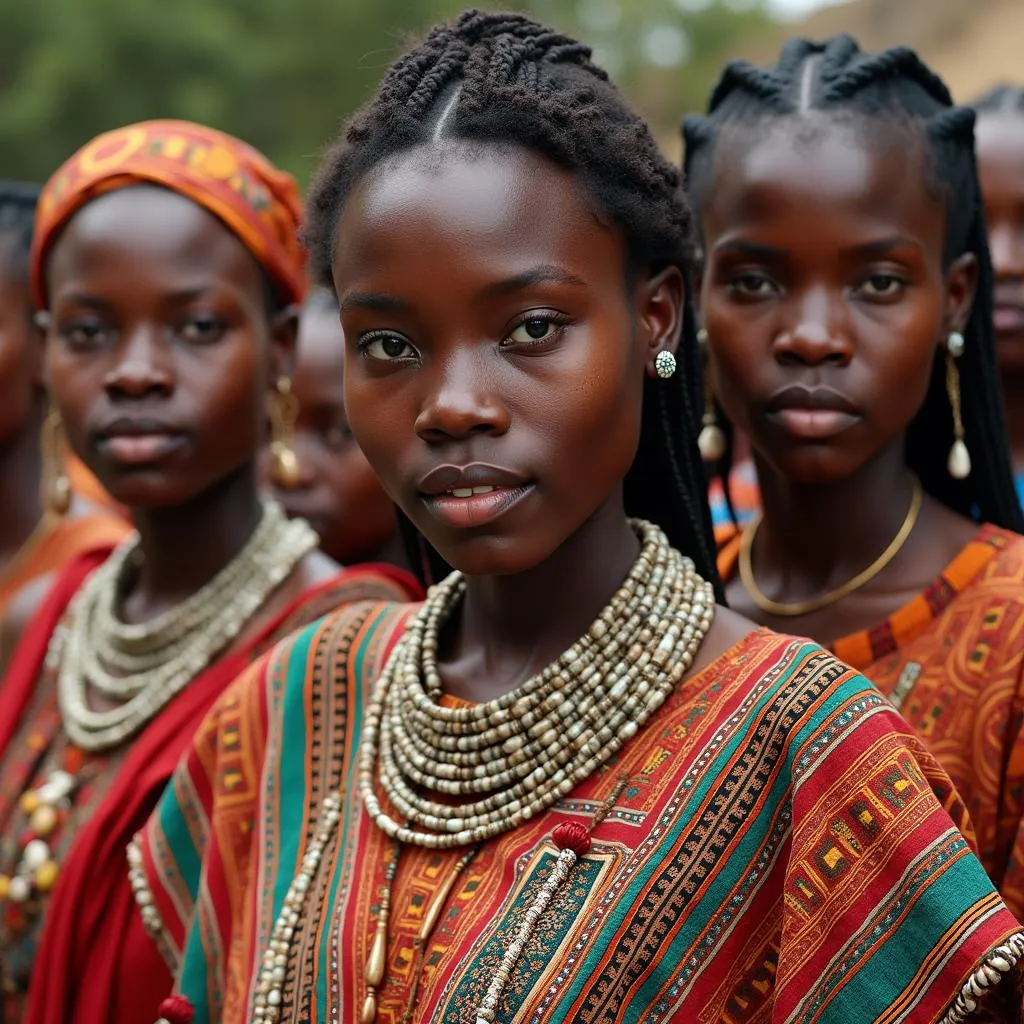A Guide to African Garments for Men: Styles, History, and Where to Find Them
African Garments For Men are a vibrant tapestry of cultural heritage, artistic expression, and sartorial elegance. From the flowing robes of the Sahara to the intricately patterned shirts of West Africa, men’s clothing across the continent tells a story of tradition, identity, and style. Whether you’re looking to incorporate African-inspired pieces into your wardrobe or simply curious about the diverse world of African menswear, this guide is for you.
The Rich History of African Garments for Men
The history of African garments for men is as diverse as the continent itself. Each region boasts its own unique fabrics, styles, and cultural significance attached to clothing. In many traditional African societies, clothing served not only as a practical necessity but also as a powerful symbol of social status, ethnicity, and even spiritual beliefs.
For instance, the elaborate headdresses worn by some ethnic groups in East Africa signified a man’s position within the community, while the colorful kente cloth of Ghana was traditionally reserved for royalty and important occasions. Over the centuries, these traditional garments have evolved and adapted, reflecting changing social norms, global influences, and individual creativity.
 West African Man in Colorful Kente Cloth
West African Man in Colorful Kente Cloth
Exploring Different Styles of African Garments for Men
Today, African garments for men encompass a wide spectrum of styles, from classic and timeless designs to modern and avant-garde interpretations. Let’s delve into some of the most popular options:
1. The Grand Boubou: Originating from West Africa, the boubou is a long, flowing robe that exudes elegance and sophistication. Typically made from richly textured fabrics like brocade, silk, or cotton, the boubou is often adorned with intricate embroidery or embellishments.
2. The Dashiki: This vibrant, colorful shirt is instantly recognizable as a symbol of African heritage. Traditionally worn in West Africa, the dashiki is known for its loose fit, short sleeves, and V-shaped neckline. Today, dashikis come in a myriad of patterns, colors, and fabrics, making them a versatile choice for both casual and formal occasions.
3. The Kente Cloth Ensemble: Hailing from Ghana, kente cloth is a handwoven fabric renowned for its vibrant colors and intricate geometric patterns. While traditionally worn by royalty, today, kente cloth is used to create a variety of garments for men, including shirts, pants, and jackets. The bold patterns and colors of kente cloth make a powerful statement of cultural pride and style.
4. The Kanzu: This long, white robe is a common sight in East Africa, particularly in countries like Tanzania and Kenya. The kanzu is often worn with a matching hat, called a kofia, and signifies purity and respect.
5. The Modern African Suit: Contemporary African designers are pushing the boundaries of menswear with innovative designs that fuse traditional aesthetics with modern sensibilities. These modern suits often incorporate African fabrics, patterns, and silhouettes, resulting in unique and stylish pieces that celebrate African heritage.
 Modern African Menswear Fashion Show
Modern African Menswear Fashion Show
Tips for Incorporating African Garments into Your Wardrobe
1. Start Small: You don’t have to overhaul your entire wardrobe to embrace African style. Begin by incorporating small pieces like a dashiki shirt, a printed scarf, or a pair of sandals made from traditional African leather.
2. Consider the Occasion: While some African garments are well-suited for casual wear, others are more appropriate for formal events. Keep the occasion in mind when selecting your outfit.
3. Experiment with Color and Pattern: African fashion is known for its bold use of color and pattern. Don’t be afraid to experiment and find what works best for you.
4. Support African Designers and Artisans: When shopping for African garments, consider supporting designers and artisans from the continent. This not only ensures you’re getting authentic pieces but also helps to promote sustainable fashion practices.
Where to Find Authentic African Garments for Men
Finding authentic African garments for men is easier than ever, thanks to the rise of online retailers and specialty stores. Here are a few avenues to explore:
-
Online Marketplaces: Platforms like Etsy and Shopify host numerous shops specializing in African clothing and accessories.
-
African Garments Shops: Many cities have specialty stores that curate and sell authentic African garments. [African garments shops] can offer a wide range of styles and sizes.
-
Direct from Artisans: If you’re traveling to Africa, take the opportunity to purchase garments directly from local artisans. This not only supports their craft but also allows you to learn more about the cultural significance of each piece.
 African Artisan Creating Clothing
African Artisan Creating Clothing
African Garments for Men: A Celebration of Heritage and Style
African garments for men offer a unique blend of history, culture, and style. From the intricate patterns of kente cloth to the flowing elegance of the boubou, these garments tell a story that transcends borders and connects us to a rich tapestry of heritage. Whether you’re drawn to the bold colors, the intricate craftsmanship, or the cultural significance, incorporating African garments into your wardrobe is a powerful way to express your personal style while celebrating the diverse beauty of African culture.
FAQs About African Garments for Men
1. What is the most popular African garment for men?
The dashiki is arguably the most globally recognized African garment for men. Its vibrant patterns and versatile style make it a popular choice for many.
2. What should I consider when choosing the fabric for an African garment?
Climate is a key factor. Lightweight fabrics like cotton are ideal for warmer weather, while heavier fabrics like brocade are better suited for cooler temperatures.
3. Can I wear African garments to a formal event?
Absolutely! Many African garments, such as the boubou and the kente cloth ensemble, are appropriate for formal occasions and exude elegance.
4. Where can I learn more about the history of African garments?
Museums, cultural centers, and online resources offer a wealth of information on the history and significance of African clothing.
5. What is the best way to care for my African garments?
Always check the care label, but many African garments benefit from handwashing or gentle machine washing in cold water.
For further inquiries about African garments and to explore a diverse range of styles, feel free to check out our curated selection at [African garments manufacturers pty ltd]. We are passionate about sharing the beauty and heritage of African clothing with the world.
Need help finding the perfect African garment for your unique style? Contact us! Our team is available 24/7 to assist you.
Call: +255768904061
Email: [email protected]
Visit us:
Mbarali DC Mawindi,
Kangaga,
Tanzania.
